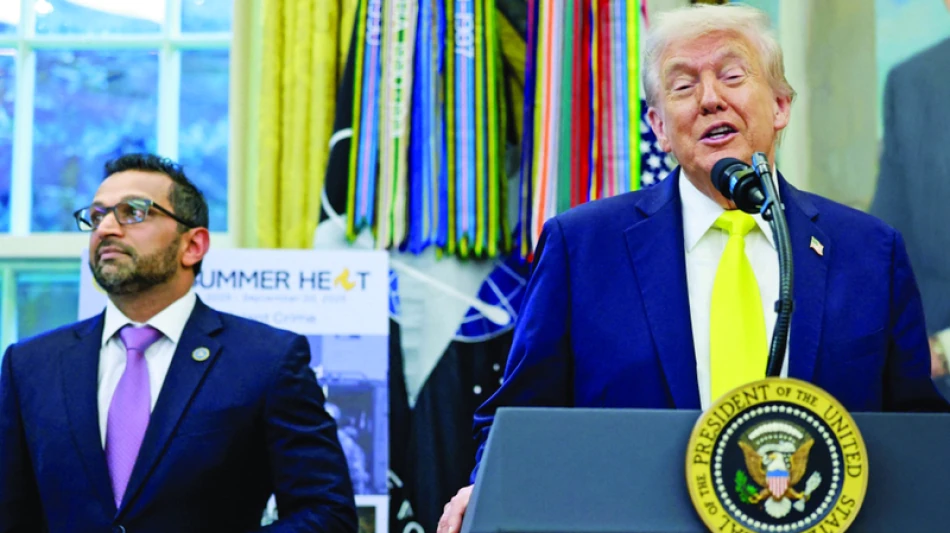
Venezuelans Anxiously Await Trump Administration's Next Move in Their Country
Rumors are spreading across Venezuela that the United States might launch a military operation to remove President Nicolás Maduro from power. The speculation isn't coming from nowhere—American officials have been calling Maduro illegitimate and a "fugitive from American justice," while a massive US naval force has gathered in the Caribbean, officially for anti-drug operations but many believe Maduro is the real target.
The US has ramped up pressure significantly in recent weeks. In August, the Justice Department doubled the bounty on Maduro to $50 million. American officials claim he leads a drug trafficking organization, which he denies. The US fleet, including warships and F-35 aircraft, has already attacked and sunk at least five boats allegedly smuggling drugs, killing 27 people in the process.
Things escalated on October 15 when three B-52 bombers flew within 150 miles of Caracas. That same day, Venezuela refused to let a US deportation flight land. Hours later, President Trump announced he had authorized a "covert" CIA operation. When asked if the agency had authority to eliminate Maduro, Trump said it wasn't a ridiculous question, but wouldn't it be ridiculous for him to answer it.
Venezuela's government, which initially dismissed the military buildup as theater, now seems genuinely worried. According to the New York Times, Maduro tried to offer Trump a significant stake in Venezuela's oil and mineral wealth in exchange for better relations. But that approach failed—Trump ordered his special envoy to cut all communication with Caracas.
The signs of escalation are everywhere. Missile launch platforms have appeared at Caracas military airport and along the Caribbean coast. Maduro now surrounds himself with civilians, possibly hoping to deter drone strikes. His TV programs no longer film inside the presidential palace but in various hotels instead.
The timing couldn't be worse for Maduro. Opposition leader María Corina Machado just won the Nobel Peace Prize, giving international legitimacy to Venezuela's opposition movement. Machado, who was banned from running for office, masterminded the campaign for substitute candidate Edmundo González. Her team collected original voting receipts from nearly every polling station, proving González won the election.
A psychology student in Caracas, who gave only his first name José, captured the mood: "Maduro and his people betrayed us, and we shouldn't forget that. They stole our votes. They deserve what's coming to them."
Trump hasn't decided his next move yet. On October 5, he expressed frustration at not finding more boats to attack. After his fleet destroyed another boat on October 14, he said his administration would "have to start looking for a solution." This might mean strikes on alleged drug bases in remote parts of Venezuela.
Maduro has warned that such attacks would force him to declare a strict emergency, likely meaning more opposition activists would be arrested. Hundreds are already in prison. From her hiding place in Venezuela, Machado keeps telling supporters that Maduro's end is near. "I have no doubt that Maduro will leave," she told Free Press news site on October 12. "The cracks and divisions within the regime are growing."
But there's little evidence the regime is actually fracturing. A diplomat in Caracas, speaking anonymously, said: "This country is ruled like the mafia. It's a state that makes few mistakes when it comes to survival." For years, counterintelligence teams have quickly crushed any dissent in the military ranks.
If Machado is right and the regime collapses, what comes next? She promises a renaissance, a trillion-dollar investment opportunity, and the return of millions who fled poverty under Maduro. Her supporters dismiss talk of civil war, saying the election proved the country is united.
But experts like Phil Gunson from the International Crisis Group urge caution. Those most invested in the current system—militias, drug gangs, and Colombian armed rebels—are few but dangerous. As Gunson notes, history warns that "it doesn't take many people to create terror."
Trump's Venezuela moves have angered Congress members from both parties, who say he's essentially conducting war without legislative approval. Democratic Senator Jeanne Shaheen, a senior member of the Foreign Relations Committee, said while she supports fighting human trafficking, the administration has crossed lines.
"The Trump administration's authorization of covert CIA operations, execution of deadly boat strikes, and hints at ground operations in Venezuela is pushing the United States toward direct conflict without transparency, oversight, or clear guardrails," Shaheen said. "The American people deserve to know if the administration is leading the US into another conflict."
UN experts said in September that attacking the boats violates international law. A Democratic congressman, speaking anonymously, called the attacks "illegal killings that can't be justified in any court."
Most Viewed News

 Sara Khaled
Sara Khaled






